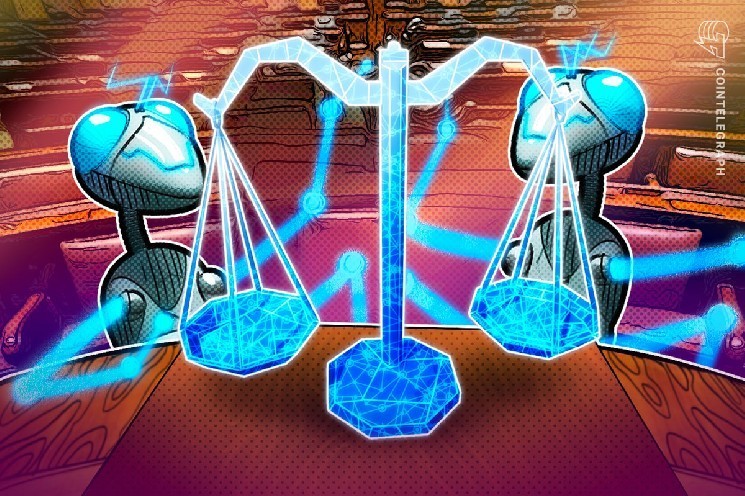
Cryptocurrency advocacy organization Coin Center has weighed in on the ongoing criminal trial of two brothers who allegedly exploited the Ethereum blockchain using maximal extractable value (MEV) bots. In a Monday amicus curiae brief — a document filed by an entity that is not a party to the case — Coin Center argued against one of the prosecutors’ key case theories involving Anton and James Peraire-Bueno. The two individuals are allegedly responsible for a $25 million MEV exploit in April 2023. According to Coin Center, the US government’s claims of “honest validation” lack merit and should be rejected by the court. “‘Honest validation’ in cryptocurrency communities is a mathematical check rather than a legal or normative judgment, and Defendants appear to have contravened none of the clear rules or controls found within the Ethereum protocol in a manner deserving outside interference or enforcement,” said Coin Center, adding: “[T]he prosecution is asking the Court to impose a novel and alien code of conduct on top of those protocol rules, not only without justification, but in a manner that would be detrimental for the government to do through criminal prosecution.” Source: Peter Van Valkenburgh The amicus brief, filed on the 14th day of the Peraire-Buenos’ criminal trial, came amid opposition from US prosecutors, who claimed Coin Center would encourage a jury to acquit the two brothers using policy arguments rather than legal ones. Related: Balancer exploit swells to $116M in outflows as team offers 20% bounty Different theories of the $25-million case At the center of the case is the MEV bot exploit, which occurs when a validator manipulates the order of transactions within a block to maximize earnings. The outcome of the case is likely to have significant implications among cryptocurrency traders and platforms. According to reporting from the courtroom by Inner City Press, lawyers for the US government said on Wednesday that they planned to argue that “the defendants engaged in false pretenses by holding themselves out as honest validator[s],” allowing them to commit the exploit. “Within the Ethereum ecosystem, ‘honest’ validation simply means obeying the specified rules of consensus articulated in the protocol software,” said the Coin Center brief. “[A]doption of the prosecution’s ‘honest validator’ theory of fraud would be alien to widespread industry practice and contravene longstanding legal principles of damnum absque injuria—harm without legal injury—and fair notice.” Defense attorneys reportedly called the theory a “nonsensical allegation,” claiming in their opening arguments that the “victims here were sandwich bots.” The two face charges of conspiracy to commit wire fraud, money laundering and conspiracy to receive stolen property. If found guilty, a judge could sentence the brothers to up to 20 years in prison for each count. Magazine: Grokipedia: ‘Far right talking points’ or much-needed antidote to Wikipedia?
Ripple News: Grayscale Files New Amendment for XRP ETF Ahead of SEC Decision
2 hour ago
FTSE Russell Takes First Step Toward On-Chain Benchmark Data With Chainlink
2 hour ago
OKX’s X Layer Integrates with Chainlink to Bridge TradFi and DeFi
2 hour ago
Crypto sentiment nosedives to ‘extreme fear’ as Bitcoin drops under $106K
2 hour ago
Blazpay Joins PumpMonad to Revolutionize Interoperability via AI-Driven Staking
3 hour ago
Crypto czar David Sacks argues AI threat is Orwellian, not Terminator
3 hour ago